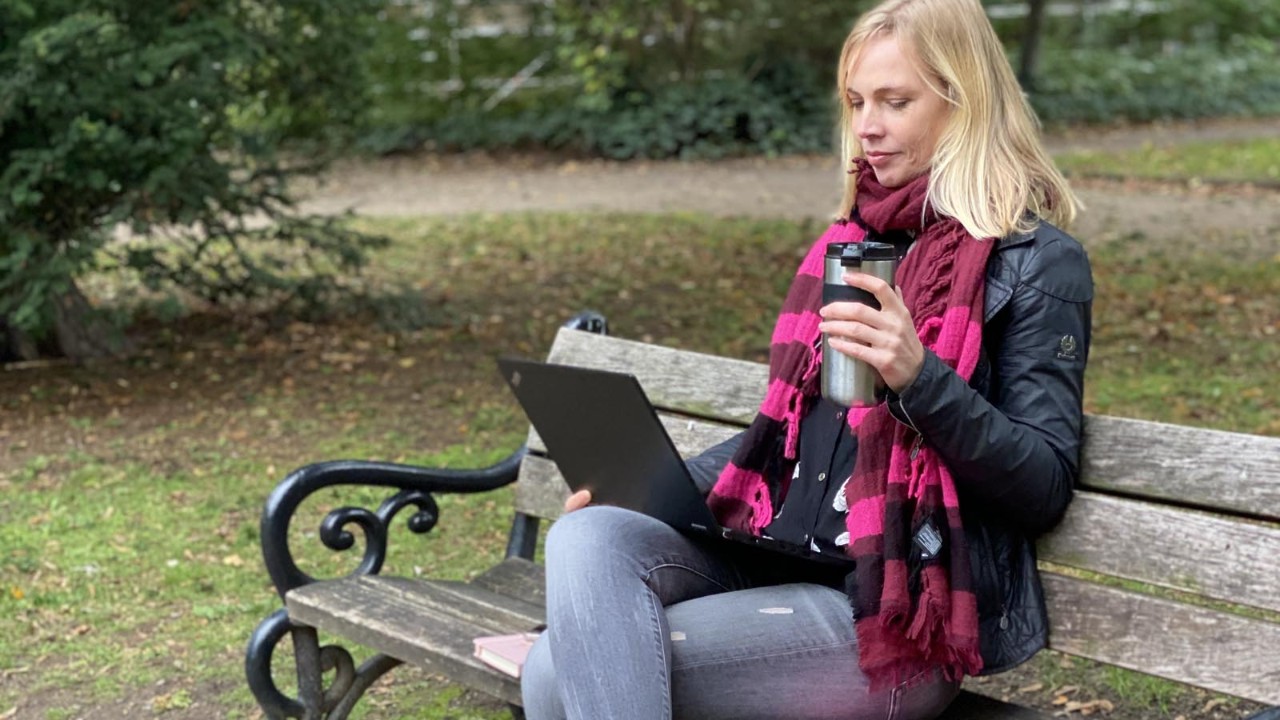The corona pandemic has upset our everyday lives - and digitalized some areas of our lives in record time. Many meetings and seminars are now held completely virtually. ERGO's Verena School explains the significance of the new meeting culture - and what needs to be taken into account in digital training.

Ms. School, a personal question for starters: How many virtual meetings have you already had today?
School: (thinks about it briefly) I had six Skype sessions so far today, with video and presentation. But it is also a very intense day. Before the Corona crisis, two thirds of the sessions would have been face-to-face sessions, but I certainly couldn't have done them in one day. So the effect is: virtually you can work through more appointments in a row.
Since the beginning of the Corona crisis, many meetings and seminars have been moved to digital. How have you perceived this process?
School: Right from the start, his time was very challenging - for me and my training team even in two respects: On the one hand, we first had to organize ourselves digitally, and on the other, we had to support others in working virtually. That was a very intensive time in which we were able to help other teams very well.
By now, many of us are used to video calls and meetings. But still, it is a different situation than at real meetings. What is the challenge with digital meetings?
School: A major challenge is that, in digital meetings, it is harder to notice when the participants' attention span is coming to an end. At such meetings there is often a culture in which people like to answer e-mails at the same time. This is noticeable in face-to-face meetings, but harder so virtually. That's why it's so important to offer and use opportunities for interaction in digital meetings. For example, ask the participants questions in the chat during a longer presentation. You can also work a lot with emojis.
The leader of the meeting should explicitly address participants who are not in the chat. Short impulses and frequent exchanges are very important virtually. And if there is the possibility, the camera should always be switched on the laptop or PC. Thus, the participants can no longer easily devote themselves to other things because the others can see it directly.
At ERGO, you are be responsible for the further training of employees. How useful are digital training courses?
School: If we stretch the learning process over several weeks, the learning effect is much higher. The inhibition threshold to make seminars or trainings virtual was very high for both participants and trainers. They were worried that personal contact would be lost, and to some extent that was true. But especially in the current climate, digital training has many advantages.
Such as?
School: One great advantage is that participants can easily participate from anywhere and do not have to wait for attendance appointments at the location. The participants can also cover their learning needs much faster. Moreover, learning and working grow closer together. One does not go to a one-day training course, but integrates learning into the daily work routine.
What other factors play a role here?
School: Presentation rounds with impulse questions are very helpful. This way, participants can also tell where they are sitting and what is going on in their surroundings. That helps to create closeness. Besidoes, it helps a lot when participants in digital training sessions don't have to look at the same screen all the time. It makes sense to change the media. For example, after a lecture with a presentation, participants should discuss it over the phone. These telephone calls can then be combined with a reflective walk. This also gets the participants into physical activity. We also provide training documents in paper form so that you don't always have to read on the screen. This way the participants can also take handwritten notes.
How important is time for a personal exchange in a digital way?
School: Very important. In our team, colleagues also make appointments for a virtual lunch or coffee. This is very valuable invested time! After all, the need for exchange with colleagues is very high after the long Corona time. That's why ERGO also offers the "connectedcoffee" service, which allows you to take a virtual coffee break with previously unknown colleagues in the company. In five months, over 500 people have met digitally in this way.
Where are the limits of digital meetings and training? What can only take place in personal exchange?
School: In meetings that revolve around interpersonal conflicts, you certainly have to be very careful. We don't digitize training courses where people are taught skills that relate to face-to-face meetings either. If the content deals with presence, there is no point in training it digitally.
Do you think that we will have to get used to this form of meetings even further? Will this be a matter of course at some point?
School: We are probably already used to digital meetings to a large extent. There even was a time when meetings were held virtually for every smallest topic. But that has become somewhat more regular again. In the meantime, this culture works very disciplined. At ERGO, most employees are trained in good virtual meeting management - even if some technical problems arise from time to time. But the learning curve in this area is very good. It will certainly become established that we no longer have people constantly traveling around from other locations, but prefer to conduct many meetings digitally. That is simply much more efficient.
Interview: Benjamin Esche
Most popular